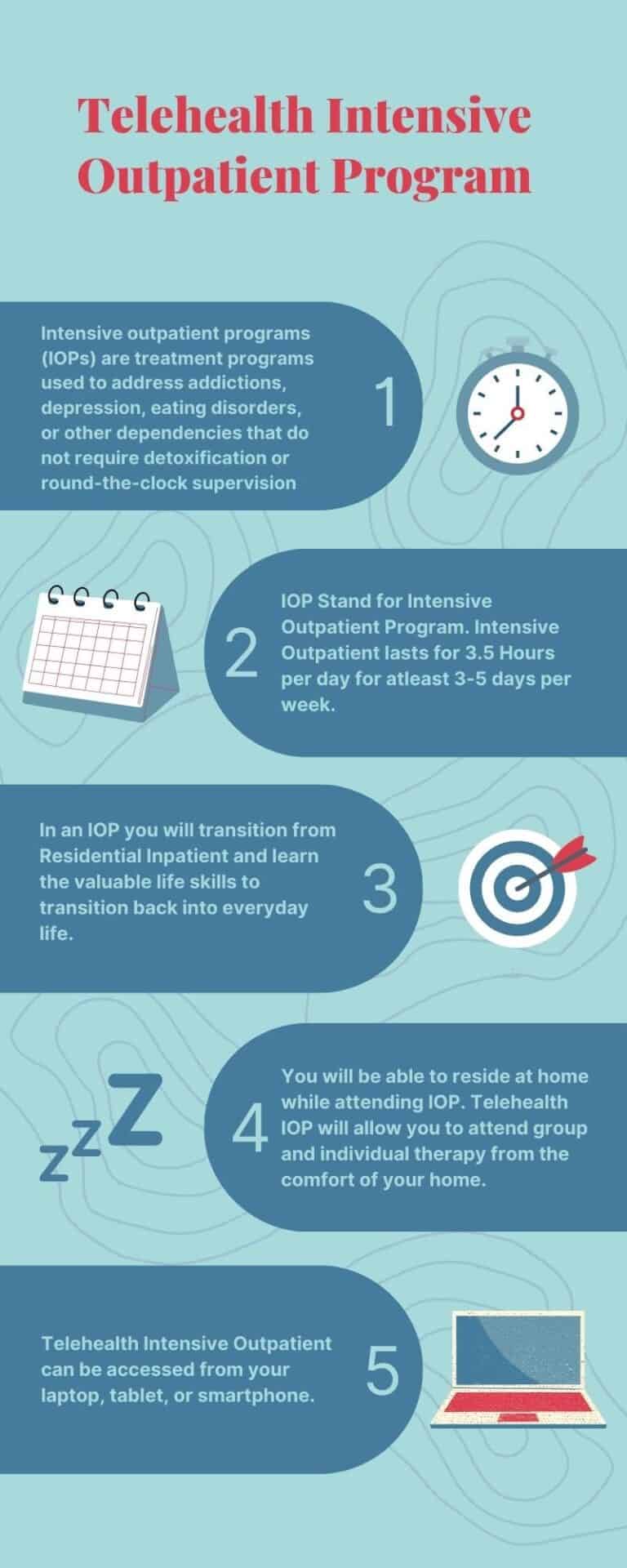The Influence of Holistic Therapies on Mind-Body Recovery in an Extensive Outpatient Program
In the world of extensive outpatient programs, the incorporation of all natural therapies has actually sparked substantial interest and argument among experts in the field of mental wellness and wellness. The expedition of different methods, such as yoga exercise, reflection, acupuncture, and mindfulness methods, questions concerning their effectiveness in promoting mind-body recovery for individuals undertaking therapy. As the need for comprehensive and integrative treatment grows, understanding the influence of these all natural treatments within the organized framework of an extensive outpatient program becomes increasingly vital. The possible harmony in between traditional therapeutic techniques and holistic practices in promoting holistic wellness stays a subject ripe for expedition and evaluation.
Integrating Holistic Therapies in IOP
Including all natural treatments into Intensive Outpatient Programs (IOP) can boost the total wellness and therapy outcomes of people looking for mental wellness support. Alternative treatments focus on dealing with the entire individual, dealing with not only the signs yet also the underlying sources of mental health and wellness issues. By integrating practices such as yoga, meditation, art treatment, and acupuncture into IOP settings, people can experience a much more detailed method to their therapy.

Benefits of Yoga and Meditation
By instilling IOP setups with holistic therapies like yoga and reflection, people can access a range of advantages that add to their psychological and emotional well-being. In addition, yoga exercise boosts self-awareness and promotes a sense of inner tranquility, which can be specifically valuable for people undertaking extensive outpatient treatment.

Acupuncture for Mind-Body Healing
Acupuncture, a traditional Chinese medicine method entailing the insertion of slim needles into particular points on the body, uses an unique method to mind-body healing by targeting power flow and promoting holistic wellness. This ancient technique is based upon the principle of Qi, the body's vital force, moving along meridians or paths. By promoting certain acupoints, acupuncturists intend to bring back the equilibrium of Qi, which is thought to be essential for general health and health.
In the context of mind-body recovery, acupuncture has actually shown promising outcomes in lowering stress and try these out anxiety, stress and anxiety, and depression by controling the body's physical reaction to these conditions. Study recommends that acupuncture can assist release endorphins, the body's all-natural pain relievers, and control neurotransmitters to boost mood and psychological health. Furthermore, acupuncture sessions are frequently gone along with by a sense of leisure and calmness, which can add to a much more balanced frame of mind.
Furthermore, acupuncture is progressively being integrated right into Western medication practices to match standard therapies for different psychological health disorders, offering a holistic technique that considers the interconnectedness of the body and mind in promoting recovery and health. Intensive Outpatient Program (IOP).
Mindfulness Techniques in Therapy
Expanding on the realm of all natural therapies, mindfulness methods play a critical role in therapy by fostering a much deeper link between the mind and body for general well-being. In the context of an extensive outpatient program, integrating mindfulness methods can assist people develop self-awareness, control feelings, and reduce tension degrees.
Mindfulness strategies can additionally aid in damaging the cycle of unfavorable thought patterns and behaviors that might add to mental health and wellness obstacles. By motivating people to observe their thoughts without add-on or judgment, mindfulness fosters a feeling of approval and empathy towards oneself (Intensive Outpatient Program (IOP)). This practice can cause boosted psychological durability, boosted coping mechanisms, and a better feeling of inner tranquility. Eventually, incorporating mindfulness methods into therapy plans can encourage people to proactively take part in their healing trip and promote alternative health.

Reviewing Alternative Interventions' Efficiency

Qualitative assessments, on the various other hand, involve gathering subjective comments from individuals regarding their experiences with alternative treatments. This qualitative data can use beneficial understandings right into the regarded benefits of these treatments on read this people' general well-being, quality of hop over to here life, and coping devices. By incorporating measurable information with qualitative feedback, scientists can gain a much more holistic understanding of the efficacy of these treatments in advertising mind-body recovery within an intensive outpatient program. Such evaluations are crucial for informing evidence-based methods and maximizing holistic treatment methods for people seeking detailed wellness.
Conclusion
Finally, the assimilation of all natural treatments such as yoga exercise, meditation, acupuncture, and mindfulness methods in an extensive outpatient program can have a substantial effect on mind-body healing. These treatments supply a more extensive method to treatment by resolving the physical, psychological, and spiritual aspects of a person's well-being - Intensive Outpatient Program (IOP). Examining the efficiency of these alternative interventions is crucial in recognizing their possible advantages in enhancing the overall healing process for individuals in an outpatient setting